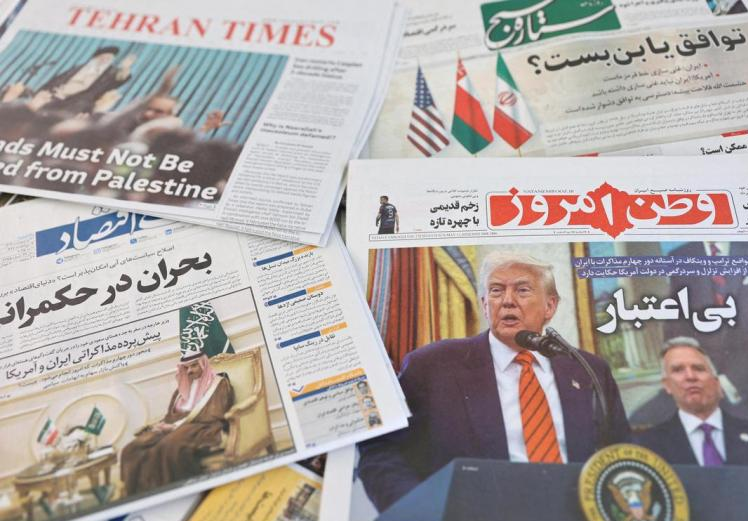
An Iranian diplomat said on Monday (June 2nd) that Iran is prepared to reject the nuclear deal proposal put forward by the United States, and criticized the proposal as "meaningless", neither in Tehran's interests nor helpful in changing Washington's position on uranium enrichment.
Reuters reported that the senior diplomat, who is closely related to the Iranian negotiating team, disclosed: "Iran is drafting a negative response to the US proposal, which may be interpreted as a rejection of the US proposal."
Oman's Foreign Minister ABU Saadi submitted the new nuclear deal proposal put forward by the United States to Iran on Saturday (May 31).
However, after five rounds of talks between Iranian Foreign Minister Aragchi and Trump's Middle East envoy Vitkov to resolve the nuclear deadlock, many issues remain unresolved.
One of the red lines of the conflict is that Iran has rejected the US demand to abandon uranium enrichment, which is regarded as a preparation for the development of nuclear bombs.
Tehran said it hopes to master nuclear technology for peaceful purposes and has always denied the accusations from Western countries that it is developing nuclear weapons.
The diplomat said, "In the proposal, the United States' position on uranium enrichment in Iran remains unchanged, and there is no clear explanation for lifting sanctions."
Tehran demands the immediate lifting of all restrictions imposed by the United States that have harmed its oil economy. However, the United States believes that the lifting of sanctions should be carried out in stages.
Since 2018, dozens of institutions that are crucial to Iran's economy, including the central bank and the national oil company, have been sanctioned due to Washington's claim of "supporting terrorism or arms proliferation".
The diplomat said that the "Iran Nuclear Negotiating Council", overseen by Iran's Supreme Leader Ayatollah Ali Khamenei, assessed that the US proposal was "completely one-sided" and not in Tehran's interests.
Therefore, Tehran considers this proposal "unworkable" and believes that the United States unilaterally attempts to impose a "bad agreement" on Iran through excessive demands.
Two Iranian officials told Reuters last week that Iran might suspend its uranium enrichment activities if the United States unfreezes Iranian funds that have been frozen and acknowledges that Tehran refines uranium for civilian use under a "political agreement" that could lead to a broader nuclear deal.

Since 2025, the conflict between the United States and Europe over the governance of the digital economy has continued to escalate.
Since 2025, the conflict between the United States and Euro…
When German Chancellor Mertz officially announced that he w…
On December 3rd local time, the copper price on the London …
The European Commission announced a new economic security s…
The European Commission announced a new economic security s…
For nearly a year, US President Donald Trump has launched a…